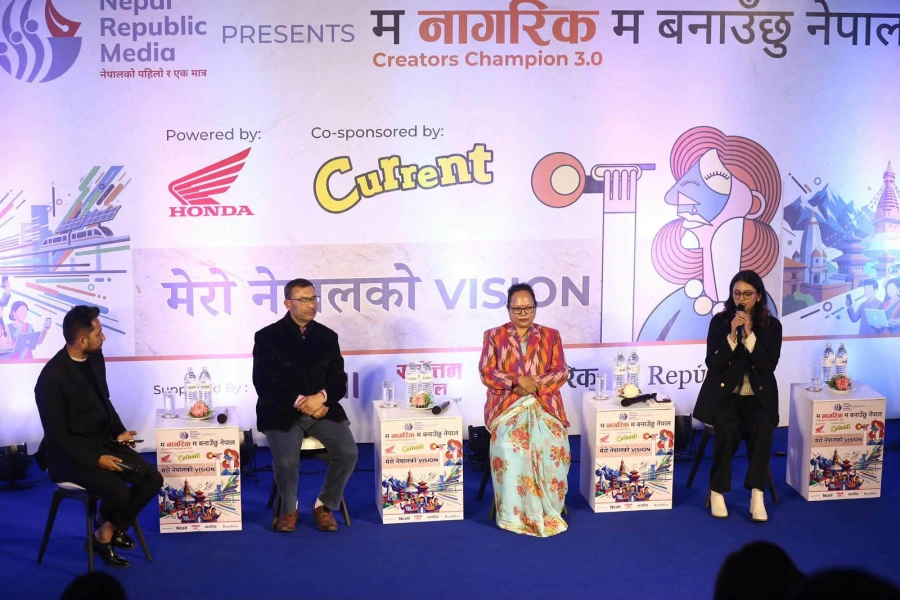Experts describe move as regressive
KATHMANDU, Dec 30: The government has dropped the Election Commission's proposal to include a 'right to reject' option for voters in elections.
Chief Election Commissioner Ayodhee Prasad Yadav said that the provision for people to cast negative votes by choosing 'none of the above (NOTA)' was rejected by the cabinet last week in the course of approving a bill on Local Body Elections Working Procedures.
The bill has now been tabled in Parliament. "The provision for NOTA that we proposed in the election bill has been removed by the cabinet," CEC Yadav told Republica.
The election body had introduced the NOTA provision while drafting the Local Body Working Procedures bill following a Supreme Court order to the government authorities concerned, including the EC, in a verdict issued in January 2015. "We included the NOTA provision after the apex court ordered us to ensure such a provision. But the government has removed the same while approving the draft," said Yadav.
Desperate search for missing girls as nearly 80 dead in Texas f...

During their discussions with election officials, the Prime Minister's Office and the political parties had opted for removing the provision, saying that a right to reject could invite complications while conducting elections in developing democratic countries like Nepal.
An official at the EC said the parties were pressing the election body to remove the NOTA provision, saying it could affect politics when a majority of voters opt for none of the candidates in an election. "They were alerting us that no candidate can secure a majority if such a right is provided to voters," said the official.
Experts on election affairs, however, object to the government move, saying it was a 'regressive move'.
"Since ensuring a right to reject is the maximum exercise of democracy we should respect the NOTA provision. Constitutional bodies like the EC cannot shy away from implementing progressive provisions adopted by developed democracies, given the context of the apex court ordering the same," said former chief election commissioner Neel Kantha Uprety.
Uprety suggested the EC put into practice such a provision even if the parties continue to reject it. 'The provision basically helps to discourage immoral and corrupt candidates and parties in the election process," said Uprety, stating that India's election commission has also successfully ensured a right to reject although the political parties objected initially.
In South Asia, India and Bangladesh have NOTA provisions while Pakistan reversed such a provision following non-cooperation by political parties.
The EC is worried whether the political parties will backtrack from other progressive provisions also, such as those on threshold and party finances which were introduced for electoral reforms. The election body has proposed a three percent threshold for parties to get the status of a national party and become eligible for state funds on the basis of the vote they secured in past elections. The idea is to bring party finances within the ambit of the Office of the Auditor General.
"A threshold is important not just to discourage the increasing number of political parties and to hold them accountable but also for actually conducting the elections," said CEC Yadav.
The election chief said the ballot paper will be more than a foot long even if only 50 parties are allowed to contest in the elections. "Given that context, our printing company, Janak Sikshya Samagri Kendra, will not be able to print such a long ballot paper and publishing ballot papers outside the country will be unseemly," said Yadav.
Currently, 110 parties are registered with the EC. The election body believes the number of parties could be reduced to 11-12 if the threshold provision as proposed in the election bill gets approved by Parliament.




































